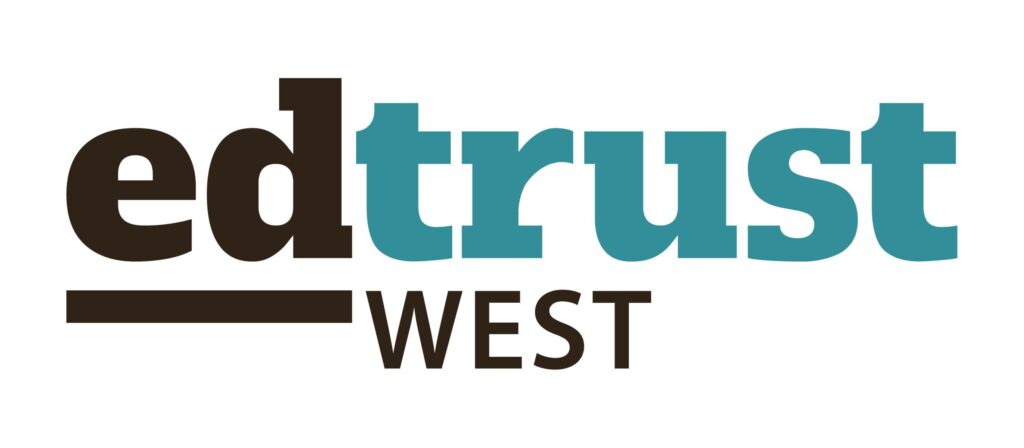Oakland, CA — Dr. Christopher J. Nellum, Executive Director of The EdTrust-West, issued the following statement in response to the release of 2020 results of the California Assessment of Student Performance and Progress (CAASPP):
The assessment results released today are a damning snapshot of what we already know: the COVID-19 pandemic has only widened our state’s devastating educational inequities.
The results spell it out clearly. During the pandemic, scores fell (or saw marginal improvement) for Latinx, Black, and low-income students in English Language Arts (ELA) and math, stalling years of slow progress toward closed equity gaps.
And the circumstances in which students took these assessments say it just as clearly. Many young Californians completed their tests from home, often without access to reliable devices or robust bandwidth. What’s more, those most likely to have already been shut out from opportunity were also more likely to have to concurrently contend with a persistent lack of in-person instruction, heightened family obligations, stress, loneliness, and for many, grief.
This year’s CAASPP results reflect the painful challenges students face and illustrate how urgently we must address them. They also provide information parents want to better understand how well schools and students are meeting academic standards.
The EdTrust – West has been advocating for educational justice for over two decades, and it’s no exaggeration to say that the school years of the pandemic have been—and will continue to be—the most important California has seen yet. We’re at a crossroads. We can’t go back to normal because the old normal wasn’t good enough. This is especially true for Black, Latinx, and Native American students, English learners, students from low-income families, and all others whom our systems and institutions have marginalized⸺ and continue to marginalize.
The hard reality these results depict requires bold action: the state must invest its anticipated state budget surplus and federal resources in remaking our education systems by prioritizing students furthest from opportunity. Let’s finally give every student a fair shot at turning their dreams into reality. (Learn more about how school districts can rebuild and reimagine their schools using state and federal funds here.)
Among the key results of the 2020 CAASPP:
The CDE recommends using caution when comparing 2020-21 school year results with those of 2018-19. In addition to the challenges noted above, far fewer students completed the assessments than in an average year. Further, those who did may not reflect the state’s demographics.
- Approximately half of all CA students (49%) are on grade level in English-Language Arts (ELA), and only roughly a third (34%) are on grade level in Math. These percentages represent a 2 percentage point drop in ELA and 6 percentage point drop in math since 2018-19, the last year of available testing data.
- ELA and Math scores remained constant or dropped across all student groups from 2018-19 to 2020-21.
- Low-income students saw a drop of 4 percentage points in ELA (from approximately 39% to approximately 36%) and 7 percentage points in Math (from approximately 27%to approximately 20%).
- Black students saw a 1 percentage point increase in ELA (from 33% nearly 34%) and a 2.5 percentage point drop in Math (from approximately 21% to approximately 18%).
- Latinx students saw a 3 percentage point drop in ELA (from 41% to 38%) and a nearly 8 percentage point drop in Math (from approximately 28% to approximately 20%).
- Only 8% of English Language Learners (ELs) are at grade level for math, and only 11% for English, representing a 5 percentage point drop and a 2 percentage point drop, respectively.
- In comparison, younger students are performing better: 15% of 3rd grade ELs are at grade level for English, and 17% of 3rd grade ELS are at grade level for math.
About The EdTrust-West
The EdTrust-West works for educational justice and the high academic achievement of all students at all levels, pre-K through college, in the state of California. We expose opportunity and achievement gaps that separate students of color and low-income students from other youth, and we identify and advocate for the strategies that will forever close those gaps.
###

